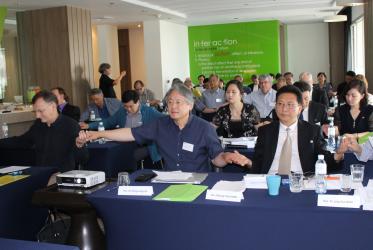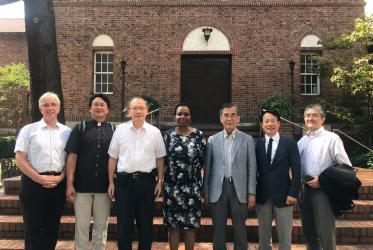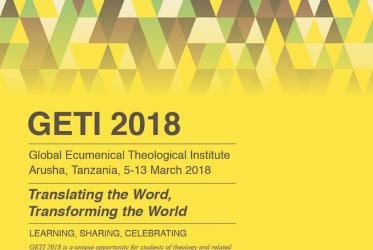Displaying 1 - 12 of 12
25 February 2021
In Japan, spirit of koinonia deepens
26 September 2019
WCC condemns massacre of farmers in Philippines
12 April 2019
G20 summit: call to pray for peace in Hamburg
07 July 2017
Pilgrimage of justice and peace gives vision for WCC programmes
22 November 2014






